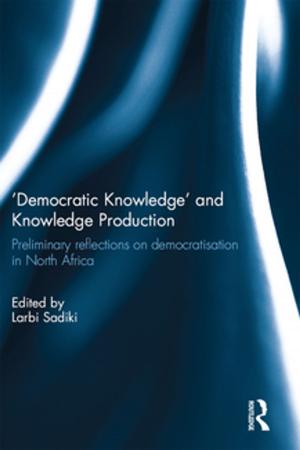Rights and Reason
An Introduction to the Philosophy of Rights
Nonfiction, Religion & Spirituality, Philosophy| Author: | Jonathan Gorman | ISBN: | 9781317489344 |
| Publisher: | Taylor and Francis | Publication: | December 18, 2014 |
| Imprint: | Routledge | Language: | English |
| Author: | Jonathan Gorman |
| ISBN: | 9781317489344 |
| Publisher: | Taylor and Francis |
| Publication: | December 18, 2014 |
| Imprint: | Routledge |
| Language: | English |
In "Rights and Reason", Jonathan Gorman sets discussion of the 'rights debate' within a wide-ranging philosophical and historical framework. Drawing on positions in epistemology, metaphysics and the theory of human nature as well as on the ideas of canonical thinkers, Gorman provides an introduction to the philosophy of rights that is firmly grounded in the history of philosophy as well as the concerns of contemporary political and legal philosophy. The book gives readers a clear sense that, just as there are arguments about the content of rights, and just as there are myriad claims to rights, so there are pluralities of theories of rights that offer some understanding of the moral and legal realm and of the place rights may hold within it. Gorman argues that in a pluralist context of inconsistent rights we require pragmatic procedures rather than universal principles of justice to resolve conflicting claims.
In "Rights and Reason", Jonathan Gorman sets discussion of the 'rights debate' within a wide-ranging philosophical and historical framework. Drawing on positions in epistemology, metaphysics and the theory of human nature as well as on the ideas of canonical thinkers, Gorman provides an introduction to the philosophy of rights that is firmly grounded in the history of philosophy as well as the concerns of contemporary political and legal philosophy. The book gives readers a clear sense that, just as there are arguments about the content of rights, and just as there are myriad claims to rights, so there are pluralities of theories of rights that offer some understanding of the moral and legal realm and of the place rights may hold within it. Gorman argues that in a pluralist context of inconsistent rights we require pragmatic procedures rather than universal principles of justice to resolve conflicting claims.















